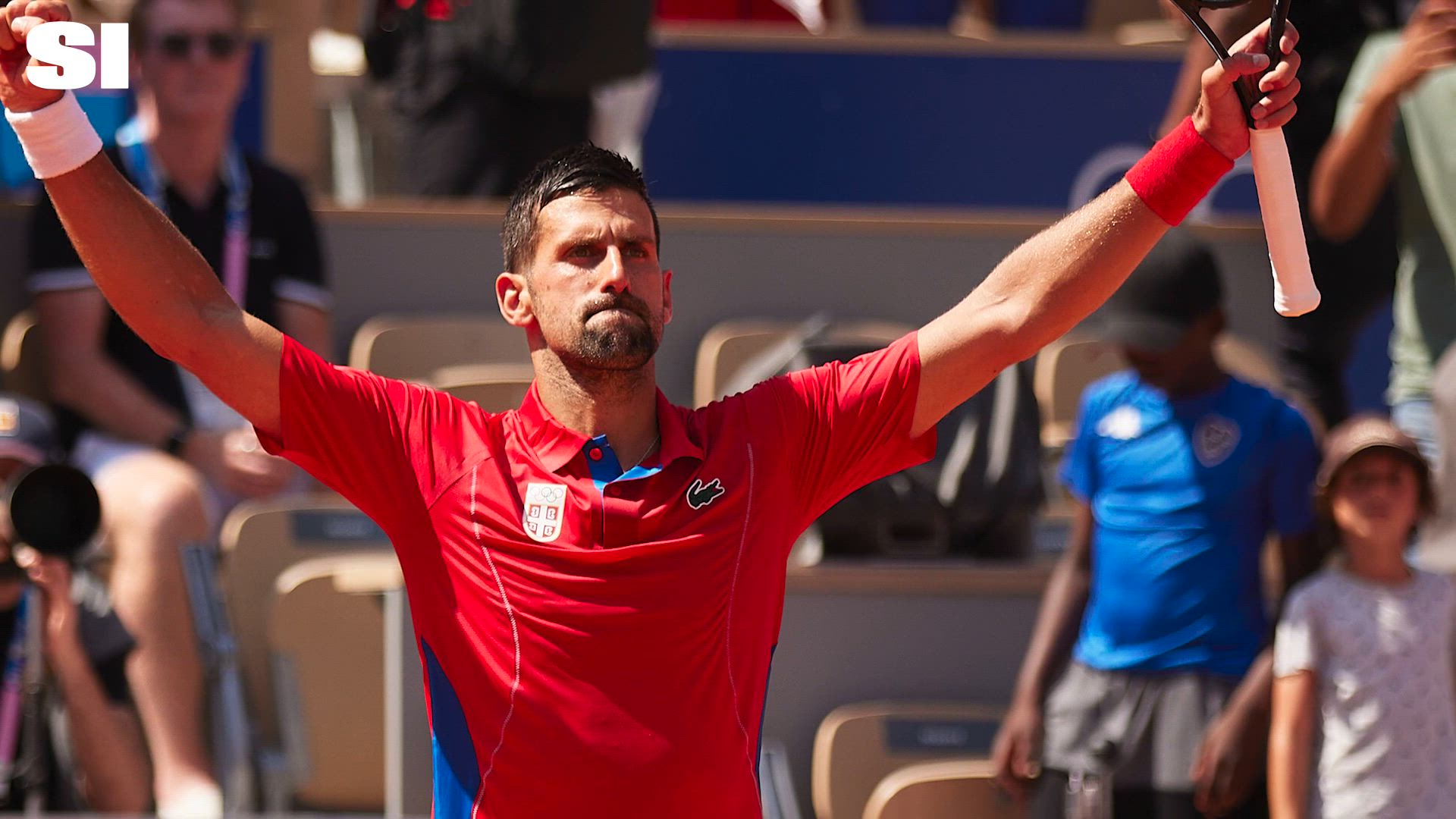

As we count down the final days of the year, SI writers are reflecting on "The Best Thing I Saw in 2024" and looking back at the most memorable moments they witnessed in their reporting this year.
Be assured that the first ancient Olympic Games came with a side helping of sandbagging.
I’m really happy just to be here participating, and any olive wreath to put above this toga would be amazing.
So much can happen in a chariot race, I just expect the unexpected and hope for the best.
I’ve always been a javelin underdog, even when I haven’t come into an event injured. So, I won’t be disappointed if I don’t win.
As long as there have been athletes, there have been attempts to minimize the pressure and expectations that come with competition.
And then there’s Novak Djokovic. The most decorated men’s tennis player finished 2023 by winning a record 24th major singles title. Entering 2024, the year he would turn 37(!) years old—he had a goal he was happy to share with all, including Sports Illustrated, who would listen. I want that gold medal.
Winning the Olympic tennis event wasn't just the one item missing, glaringly, from the Djokovic bill of particulars. A deeply patriotic athlete representing Serbia—which was declared an independent sovereign state in 2006—Djokovic was well aware of the historical significance that would attend his success. If his kind of bold pronouncement only added to the burden he would shoulder, well, even the casual sports fan knows by now: Djokovic rocks to his own drumbeat.
Djokovic’s 2024 Olympic ambitions seemed dashed in June at the French Open. During a mid-tournament match (that he won), he moved awkwardly and tore his right medial meniscus, precisely the kind of injury that would end a season (if not a career) not long ago. But owing to both modern medicine and the stubbornness of the patient, Djokovic underwent surgery and was back competing at Wimbledon less than a month later. He would reach the final but for the second straight year, lose to the Spanish leviathan Carlos Alcaraz.
With little in the way of momentum, Djokovic arrived at the Paris Olympics still speaking openly that his gold-or-bust goal was unchanged. No amount of bad priors was going to dent his optimism. “I had to get myself in the mind space,” he says, “that I wasn’t going to lose.”

He did. And he didn’t. Back on the same Roland Garros stadium clay court where he had wrenched his knee just a few weeks earlier, Djokovic played the most elevated tennis of his year. Starting with his first-round defeat of longtime rival Rafael Nadal, Djokovic served with power and accuracy. He hit his pinpoint returns. Above all, as ever, he seized all opportunities while providing his opponents none. On a pitch-perfect Sunday afternoon, in the gold medal match, he faced—you knew this was coming—Alcaraz. Where others might have seen a daunting recent history, Djokovic saw a stage for retribution.
Playing as though so much history hung in the balance (which of course it did), Djokovic didn’t simply meet the moment—he then sent it back over the net, drizzled with pace and topspin. In two tight sets, he prevailed 7–6, 7–6. It marked the only title he would win in 2024, and his year, instantly, became a success.
After match point, all that contained emotion came spuming forth. Djokovic took to his knees, one of them still heavily wrapped from the surgery.
And he sobbed. Prolongedly, uninhibitedly, and as openly as he had long speculated about this day. We knew diamonds could be forced from the crucible of pressure. Here was evidence that gold could be as well.
This article was originally published on www.si.com as Novak Djokovic’s Golden Year That Almost Wasn’t .







